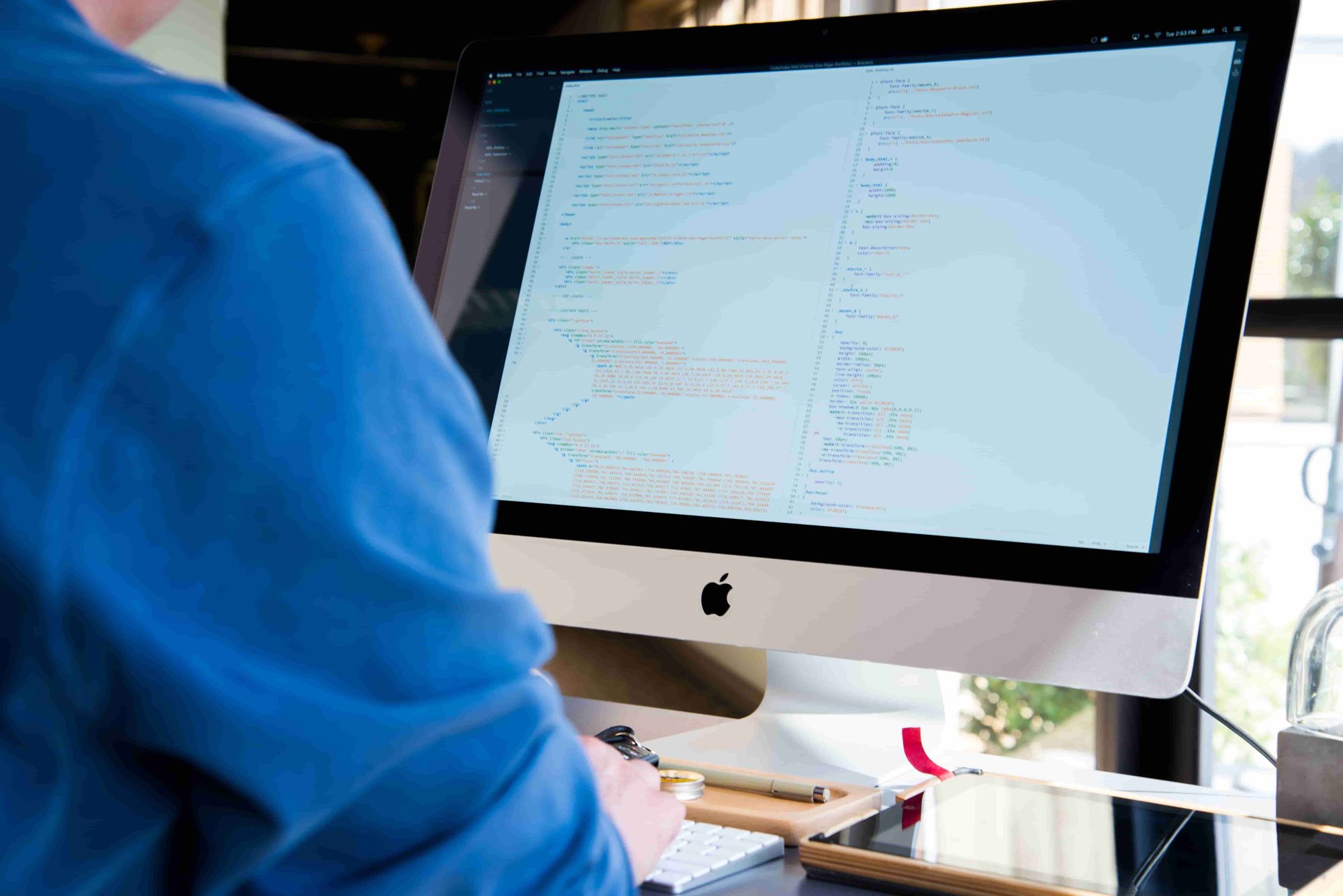As technology continues to rework traditional workplaces, more professionals are discovering the flexibleness and convenience of distant work. Within the healthcare sector, the role of a medical coder is especially well-suited to this transition.
Distant medical coding is just not only a practical alternative in our increasingly digital world, nevertheless it’s also a field experiencing growing demand. Medical coders play a pivotal role within the healthcare industry, converting vital health information into codes for billing and data evaluation.
Let’s explore the essential educational background, certifications, job responsibilities, and the essential skills and step-by-step process to develop into a distant medical coder.
What’s Medical Coding?
Medical coding is a critical a part of the healthcare industry that involves translating patient information, diagnoses, and medical procedures into standardized codes. These codes are then used for quite a lot of purposes including billing, research, and population health statistics.
- Billing and Insurance: Medical codes are used to speak to insurance firms what treatments got in order that providers will be paid appropriately. Each code corresponds to a particular service or item billed. It’s crucial for medical coders to be accurate to make sure that healthcare providers are reimbursed appropriately and patients are billed accurately.
- Standardization: Medical coding helps standardize healthcare information. No matter language or colloquial differences, medical codes are universal and help ensure consistency within the interpretation and recording of patient data.
- Data Evaluation and Research: The codes are utilized in the evaluation of disease patterns, tracking of health trends, and in medical research. In addition they assist within the planning of healthcare management in any respect levels.
- Regulatory Compliance and Reporting: These codes are necessary for reporting diseases to government health agencies and in epidemiology studies. Certain conditions have to be reported for public health reasons, and medical coding allows for uniform reporting.
Distant medical coders use various kinds of code sets depending on the situation. Some common code sets include the International Classification of Diseases (ICD), which is used to code diagnoses; the Current Procedural Terminology (CPT), which is used to code services provided by healthcare professionals; and the Healthcare Common Procedure Coding System (HCPCS), which is used to code products, supplies, and services not included within the CPT codes, reminiscent of ambulance services and sturdy medical equipment.
What are the Responsibilities of a Distant Medical Coder?
Medical coders have quite a lot of responsibilities inside the healthcare industry. Listed here are a few of their key duties:
- Reviewing Medical Records: Medical coders review patient records, notes from physicians and other healthcare providers to know the patient’s medical history, diagnoses, and coverings provided.
- Assigning Codes: The important responsibility of a medical coder is to accurately assign the suitable codes for the patient diagnosis, procedures, and coverings based on their review of the medical records.
- Working with Healthcare Providers: Medical coders often need to speak with doctors and other healthcare providers to make clear information or to assemble additional information needed for accurate coding.
- Ensuring Accuracy: Accuracy is crucial in medical coding. Coders must rigorously check and re-check their work to make sure that each code is correct. Errors can result in issues with billing, insurance reimbursement, and patient records.
- Compliance: Coders must stay updated on coding guidelines and regulatory changes. They need to make sure that all codes assigned comply with federal regulations and insurance requirements.
- Handling Confidential Information: Medical coders work with sensitive patient information. They need to follow strict privacy regulations to guard patient data.
- Submitting Claims: In some healthcare settings, medical coders may be accountable for submitting coded claims to insurance firms for payment.
- Tracking and Reporting: Medical coders may have to maintain records of treatments, tests, and procedures performed, and sometimes are involved within the evaluation of those records.
- Continuous Learning: Medicine and coding standards are at all times evolving. Subsequently, medical coders must take part in ongoing training and education to remain current.
What’s the Salary of a Distant Medical Coder?
In line with the American Academy of Skilled Coders (AAPC) 2020 Salary Survey, the common salary for a medical coder in the USA was roughly $57,201 per 12 months. Coders who held certifications tended to earn more. For instance, Certified Skilled Coders (CPCs) earned a median of around $64,890 annually.
Entry-level medical coders may start with lower salaries, possibly within the range of $35,000 to $45,000 per 12 months. In contrast, experienced coders or those in supervisory or managerial roles can earn upwards of $70,000 to $80,000 or more.
What are the Skills required for a Distant Medical Coder Job?
Distant medical coders need all of the abilities of an on-site medical coder, with a number of additional capabilities as a consequence of the character of distant work. Listed here are some necessary skills for a distant medical coder:
- Medical Coding Knowledge: As with every medical coder, a robust understanding of medical terminology, anatomy, physiology, and pharmacology is important. Familiarity with ICD, CPT, and HCPCS code sets is required as well.
- Computer Proficiency: Distant medical coders can be working exclusively on their computers, so a robust grasp of computer use is important. This includes using Electronic Health Records (EHR) systems, coding and billing software, and general computing skills reminiscent of word processing and spreadsheet management.
- High-Speed Web: Since you may be working remotely, having a reliable high-speed web connection is essential. It’ll make sure that you are capable of access medical records and coding systems with none issues.
- Self-Motivation and Discipline: Working from home requires the discipline to set a schedule and keep on with it. Without the structure provided by a conventional office environment, people may struggle to keep up productivity when working from home.
- Time Management: Just like the above point, distant medical coders need to administer their time effectively. This includes prioritizing tasks and ensuring deadlines are met.
- Communication Skills: While working remotely, most async communication can be done via email, chat applications, or video conferencing. Having the ability to effectively communicate in these formats is crucial.
- Data Privacy: Distant medical coders must follow the identical strict privacy regulations as in-office coders. This includes ensuring their home workspace is secure and that patient data is just not viewable by others of their home.
- Problem-Solving Skills: Sometimes it’s possible you’ll encounter discrepancies or gaps within the medical records that you could resolve. Good problem-solving skills can aid you investigate and rectify such issues.
- Continuous Learning: The sector of medical coding is dynamic and infrequently subject to changes and updates. A superb medical coder must be open to learning and adapting to latest coding practices and software.
- Attention to Detail: A small mistake in coding can result in significant issues with billing and insurance reimbursement, so being detail-oriented is crucial on this role.

Education Requirements for a Distant Medical Coder Job
To develop into a medical coder, you sometimes need to finish the next educational steps:
High School Diploma or GED: You’ll have a highschool diploma or a GED as a basic requirement.
Post-secondary Education: Many employers prefer medical coders who’ve some post-secondary education. This might be a certificate program, an associate degree, or perhaps a bachelor’s degree in a relevant field. The main target of those programs must be on topics like medical terminology, anatomy and physiology, health data requirements and standards, classification and coding systems, healthcare reimbursement methods, and computer systems.
Post-secondary programs will be found at community colleges, trade schools, and a few universities. Some schools may offer online programs which will be helpful for people who’re working or who need a more flexible schedule.
Certification: While not at all times required, many employers prefer or require medical coders to have skilled certification. These certifications show that you will have met certain standards of competence in the sphere. Certifications will be obtained from organizations just like the American Academy of Professional Coders (AAPC) and the American Health Information Management Association (AHIMA).
Examples of certifications include Certified Professional Coder (CPC), Certified Coding Specialist (CCS), or Certified Coding Associate (CCA). These generally require passing an exam, and a few may require a certain quantity of skilled experience or membership within the certifying organization.
Continuing Education: Medical coding is a dynamic field, with changes in healthcare laws, insurance regulations, and technology. To take care of their certification and to remain current with the industry, coders often must take part in continuing education opportunities. This could be workshops, seminars, courses, or webinars offered by skilled associations or other organizations.

Methods to Grow to be a Medical Coder?
Becoming a medical coder involves a series of steps that typically include the next:
- High School Education: This is step one to any profession. Getting a highschool diploma or GED is a requirement for many medical coding jobs.
- Post-secondary Education: While it’s possible to seek out a medical coding job with only a highschool diploma, most employers prefer applicants who’ve further education in the sphere. Many community colleges, vocational schools, and online learning platforms offer certificate programs in medical coding. These programs often take around one 12 months to finish and canopy topics reminiscent of medical terminology, anatomy and physiology, health statistics, and computer science.
- Get Certified: The healthcare industry recognizes several certifications for medical coding. These include the Certified Skilled Coder (CPC) from the AAPC, the Certified Coding Specialist (CCS) from the AHIMA, and others. Becoming certified often requires passing an exam and should require or prefer a certain quantity of skilled experience in the sphere.
- Gain Experience: Some medical coders start in related healthcare roles, like health information technology, to achieve experience before moving right into a medical coding role. Others may start as junior medical coders and learn on the job.
- Set Up a Home Office: Be sure that you will have a quiet, comfortable workspace at home with a reliable web connection and any required software. This might include a coding platform, electronic health record system, and general office software like word processing and spreadsheets and other distant work tools.
- Stay Current: Maintain and renew your certification as required by the certifying body. This often involves continuing education units (CEUs).
- Apply for Distant Coding Jobs: Search for distant medical coding jobs on distant job boards, company web sites, and sites specifically for distant or telecommute jobs. In your application or interview, emphasize any experience you will have working remotely and your ability to administer your time and stay motivated while working from home.
- Data Security: Concentrate on and follow all regulations related to patient privacy and data security. This is especially necessary in a distant work environment where you’re accountable for protecting the information in your own home office.
Do not forget that job requirements can vary by employer, so it’s an excellent idea to take a look at distant job postings in your area to see what qualifications employers are searching for. This could aid you tailor your education and certification selections to fulfill those requirements.

Top corporations hiring for Distant Medical Coding Jobs
There are several notable corporations known for hiring distant medical coders. Listed here are a number of:
- UnitedHealth Group: UnitedHealth Group is a diversified health and well-being company dedicated to helping people live healthier lives. They often have distant coding jobs available through their Optum branch.
- Change Healthcare: A healthcare technology company that gives software, analytics, network solutions, and technology-enabled services. Change Healthcare have varipous positions for distant medical coders.
- Ciox Health: Ciox Health is a healthcare IT company that always has distant positions for medical coders.
- Humana: Humana is a number one healthcare company that gives quite a lot of health, wellness, and insurance services and products. Humana often hire for distant coding positions.
- nThrive: This company provides revenue cycle management services for healthcare providers. They typically have quite a lot of distant medical coding jobs.
- Maxim Healthcare Services: They provide quite a lot of healthcare services and infrequently have openings for distant medical coders.
- Aviacode: This company makes a speciality of medical coding and billing. Aviacode continuously have openings for distant coders.
- Conifer Health: They provide quite a lot of services for hospitals, health systems, and physician groups, including coding and billing services.
Remember to examine these corporations’ official web sites or distant job posting platforms like DailyRemote, Indeed, LinkedIn, or Glassdoor for current vacancies. Consider that the provision of distant positions may vary depending on the present situation of the corporate and their response to changing conditions.
Conclusion
The trail to becoming a distant medical coder is a rewarding journey that mixes the flexibleness of working from home with the soundness and growth of the healthcare industry. This role requires a mix of technical skills, an understanding of medical terminology, and a dedication to accuracy and detail. With the appropriate education, certification, and experience, you’ll find ample opportunities on this high-demand field.
Whether you are ranging from scratch or transitioning from an on-site role, pursuing a profession as a distant medical coder can open doors to latest skilled opportunities. It lets you contribute to the healthcare sector, at the same time as you enjoy the advantages of a distant work environment.
So, what are you waiting for? Begin your medical coding journey today, and remember – practice makes perfect! With time and persistence, you will find yourself working in a thriving, in-demand field with loads of opportunities to prosper.
If you happen to are trying to find a distant medical coding job at and want help finding where to look? We’re a distant job board with the most recent jobs in various categories to aid you. Try these top distant corporations offering 4 day work week and join like-minded people in our LinkedIn community.
FAQs
Is medical coding an excellent profession?
Yes, medical coding an excellent profession for anyone. Listed here are a number of aspects to contemplate:
- Growing Demand: The healthcare sector is one in every of the fastest-growing industries, and the demand for medical coders is anticipated to grow as the necessity for healthcare services increases. Aging populations and the implementation of electronic health records are contributing to this growth.
- Work Flexibility: Medical coding can offer flexible work arrangements. Many positions allow for part-time or distant work, which may provide an excellent work-life balance when working from home.
- Competitive Salaries: The salaries for medical coders will be competitive, especially for individuals who hold certifications and have significant experience.
- Opportunities for Advancement: As you gain experience and extra certifications, there are sometimes opportunities for advancement in the sphere. You may move into supervisory or managerial roles, or concentrate on a particular area of medical coding.
- Continuous Learning: If you happen to enjoy learning, medical coding might be an excellent fit. The sector is at all times changing as a consequence of updates in healthcare regulations and coding guidelines, so there are at all times latest things to learn.
Are medical coders in demand?
Yes, medical coders are in very high demand without delay. In line with the U.S. Bureau of Labor Statistics (BLS), the employment of health information technicians, which incorporates medical coders, is projected to grow 8 percent from 2019 to 2029, faster than the common for all occupations. Nonetheless, it is usually an excellent idea to examine essentially the most recent data for essentially the most current outlook.
Are you able to make good money as a medical coder?
Yes, medical coding can offer competitive salaries, especially for coders who’ve significant experience and hold skilled certifications. As of 2020, in line with the AAPC, the common salary for an authorized medical coder in the USA was around $57,201 per 12 months, with certified coders earning a median of $64,890 annually.